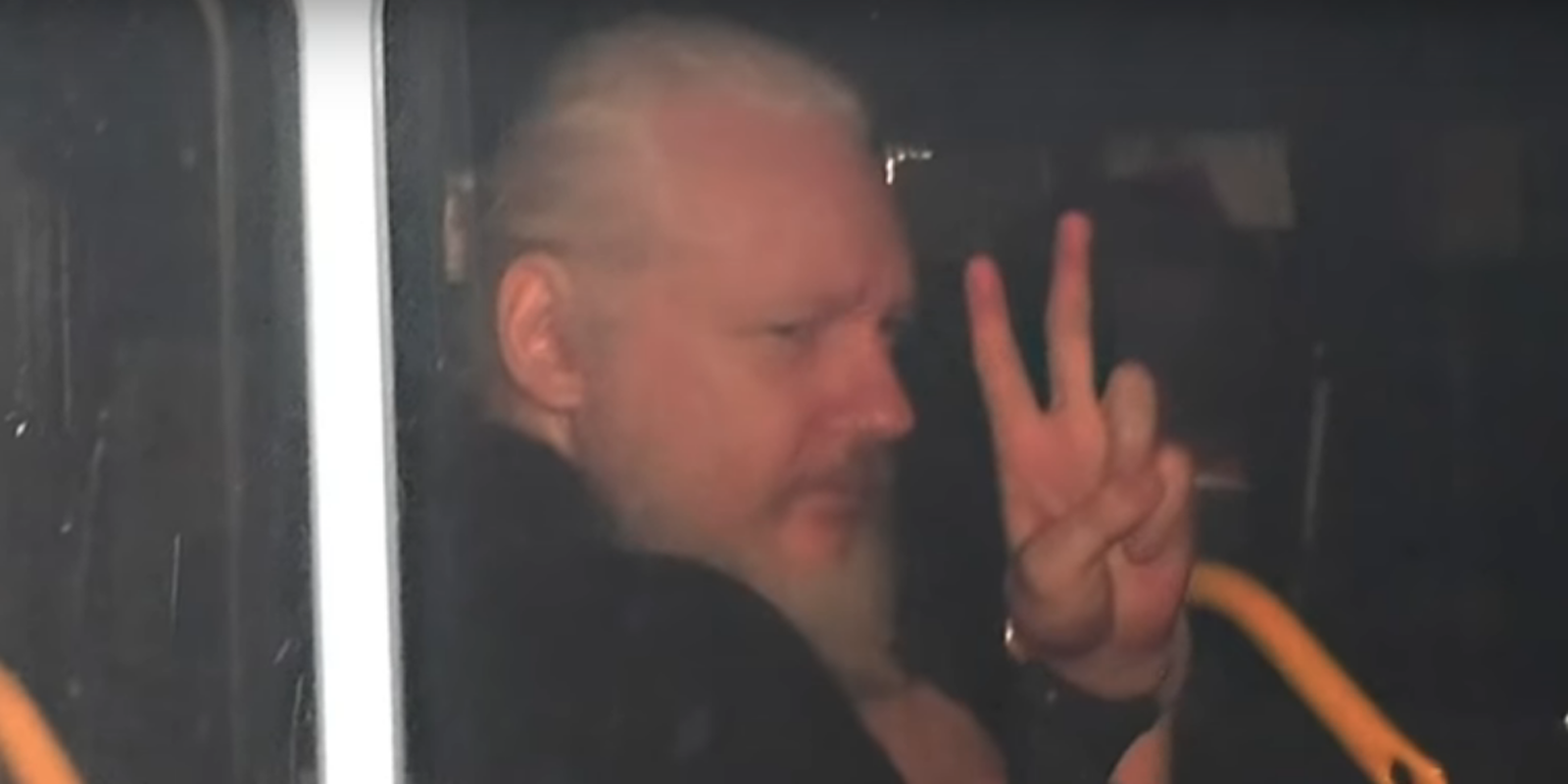WikiLeaks founder Julian Assange appeared in London’s Westminster Magistrates’ Court on Thursday to begin his legal fight to avoid extradition to the U.S.
Given the opportunity to consent to the extradition request, Assange refused.
“I do not wish to surrender myself for extradition for doing journalism that has won many, many awards and protected many, many people,” he told the court via videolink from prison.
Ben Brandon, counsel representing the U.S. government, presented the Trump administration’s case for the 47-year-old’s rendition. He repeated some of the allegations outlined in the Justice Department indictment published the day that Assange was arrested.
The WikiLeaks founder faces “a federal charge of conspiracy to commit computer intrusion for agreeing to break a password to a classified U.S. government computer.”
This charge stems back to Assange’s engagement with whistleblower Chelsea Manning in 2010, when she leaked thousands of classified military files to WikiLeaks, and is based on chat logs between the pair. Prosecutors argue that after Manning had already delivered the records, Assange offered to help her crack a password. It seems like the duo did not succeed in their efforts.
If convicted, he could face up to five years in federal prison.
With Assange’s decision to fight the effort to have him relocated to the U.S., a further hearing was set for June 12. Judge Michael Snow, however, told the court that a full hearing could be several months away.
Indeed, the WikiLeaks founder has a full appeals process through which to move his case if a decision is made against him. The case can pass upward through the courts to the U.K.’s Supreme Court. The extradition, should it at all happen, could be at least two years away by the time these legal options are exhausted.
Outside the packed court, dozens of transparency activists and supporters gathered in solidarity.
“Despite what you heard from the prosecutor in the courtroom today, this case is not about hacking,” Assange’s lawyer Jennifer Robinson told reporters after the hearing.
“This case is about a journalist and a publisher who had conversations with a source about accessing material, encouraged that source to provide material and spoke to that source about how to protect their identity. This is protected activity that journalists engage in all the time.”
On Wednesday, U.K. courts sentenced Assange to 50 weeks in maximum security prison for skipping bail in fleeing to the Ecuadorian embassy in London—where he famously resided in asylum for nearly seven years.
While that case is now considered resolved, the battle over Assange’s extradition will continue at June’s follow-up hearing.
READ MORE:
- Julian Assange sentenced to 50 weeks in prison for skipping bail
- Mike Pence insists Trump’s love for WikiLeaks was not an ‘endorsement’
- Why Julian Assange’s extradition could take years—if it happens at all
- Why QAnon followers are giddy about Julian Assange’s arrest


